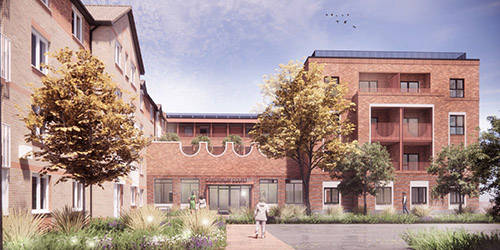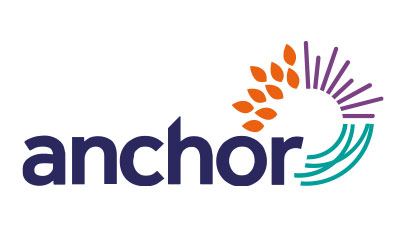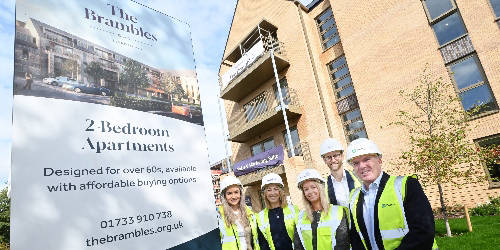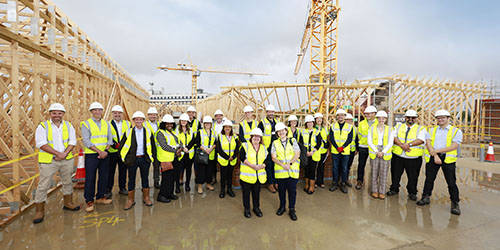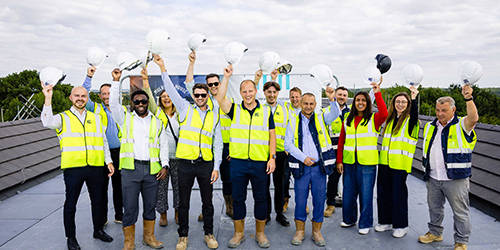- Home
- Media centre
- Press room
- Anchor Hanover forms pioneering partnership to tackle climate change
09 April 2021
Anchor Hanover joins pioneering partnership to tackle climate change
Anchor Hanover has joined forces with four other housing associations to improve the energy efficiency of their homes and their customers, while creating new standards for sustainability across the sector.
The Greener Futures Partnership (GFP) has been launched by Abri, Anchor Hanover, Home Group, the Hyde Group and Sanctuary Group, with a shared ambition to lower emissions, reduce fuel poverty and improve living conditions for residents by creating sustainable, affordable, healthier and safer homes.
Anchor Hanover’s Director of Property, Shaun Carr, said:
We are delighted to be part of the innovative Greener Futures Partnership and are committed to shaping our homes and services around the changing needs and concerns of current and future residents. We look forward to improving sustainability, energy efficiency and helping to reduce fuel poverty, so we can continue to provide homes where people love living in later life.
Over time, the partners intend to work together to procure services, build skills and create jobs, and develop solutions that enable them and the wider sector to build more affordable and sustainable homes, while maintaining existing homes so they are safe and secure for residents.
Achieving net zero carbon emissions is one of the biggest challenges, and opportunities, facing the built environment, and housing associations own and manage about 17% of the UK’s housing stock, or about five million homes.
The social housing sector is facing costs of between £13,000 to £25,000 to bring an energy-inefficient home up to an EPC rating of C, not including the investment required to develop new skills and technologies.
Peter Denton, Chief Executive of the Hyde Group and Chair of the GFP during year one, said:
The retrofit of homes, along with a sustainable approach to building new ones, will be a massive task and, while this is one of the best ways of helping the UK to start transition to a low-carbon economy, this will be a significant long-term challenge that needs action now.
The GFP was founded on the principle that, by working together to ‘green’ our homes, we can maximise the benefits of sustainable housing for our customers, their communities and society as a whole. Furthermore, we can benefit from the financial, technological and energy efficiency gains that collaboration brings.
The five HAs – which have a joint turnover of over £2.3bn – have signed a Collaboration Agreement for an initial 12 months, during which time they will consider future structures and vehicles to support medium to long-term aims around joint procurement and delivery.
However, the initial primary focus will be engagement with key stakeholders, and consultation with customers will be of highest importance.
As such, customers will play a key role. The partners have unique and invaluable insight into the hundreds of thousands of people living in their homes, which means they can inform and educate on low carbon solutions and encourage residents to adopt and embrace new technology and lifestyle changes, laying the foundations for more sustainable living.
The partners believe that to do this, customers’ views and preferences must be understood. Residents and communities will be consulted with and they will be involved in designing solutions, which aim to reduce fuel poverty and improve living conditions from the outset.
The homes owned and managed by the GFP members represent a cross-section of UK housing stock, from Victorian street properties, to post-Second World War estates and modern developments, with homes in rural, suburban and urban areas.
One of the goals of the partnership is to create a single, credible approach to assessing the sustainability of their homes and ensuring they meet the wider ‘greener’ agenda, beyond EPC ratings.
It also intends to build and share knowledge and expertise within the social housing sector and beyond, forging partnerships that will inform and deliver real change.
The group’s first actions will be to agree shared standards and pathways for property types, building insight into customer views and preferences, and sharing insight with the wider sector.
This includes sharing their understanding of fuel poverty and deprivation levels across geography and stock types, along with property datasets and analysis.
Peter Denton added:
The scale of the carbon zero challenge means that we must do more than just cooperate – we need to truly collaborate, if we are to tackle the issues effectively and at scale. The Greener Futures Partnership signals the beginning of our commitment to join forces and resources as a sector to support the UK’s shift towards a zero carbon future, to help the environment and improve the lives of millions of people.
For more information about the Greener Futures Partnership, please visit the following link: https://www.greenerfuturespartnership.co.uk/
Read more from Anchor Hanover
This website uses cookies which track activity so that you get the best possible experience. By continuing to use this website we will assume you are happy and cookies will be set. You can change your cookie settings at any time.


